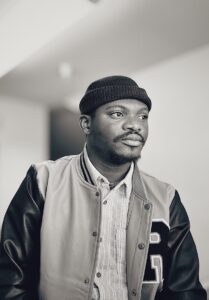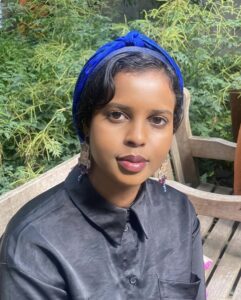In the 1970s to ‘90s, the bestselling American novelist Delia Owens lived in Botswana and Zambia with her husband, for 22 years. They studied wildlife in Botswana, until they were kicked out by the government for criticizing conservation policies. In 1986, they moved their work to Zambia’s North Luangwa region. There, they encountered poachers who hunted elephants to acquire ivory for the black market. Delia’s husband, Mark Owens, equipped local scouts with arms and led them in confrontations and air raids against the poachers.
The murder of an unidentified poacher in one such encounter was filmed and televised in the US in 1995, via the ABC News documentary series Turning Point. The episode covered the Owens’ work in Zambia at the time. After it aired, a police investigation followed in Zambia. While Delia is a person of interest, it is her husband and stepson Christopher Owens who are actual suspects in the killing. The family left the country and was advised by the US embassy not to return. They haven’t gone back since.
Then in 2018, her debut novel Where the Crawdads Sing was released to immense critical and commercial success. The actress Reese Witherspoon selected it for her influential book club and it has since sold 12 million copies. Its film adaptation, produced by Witherspoon, was released yesterday.
But despite massive PR efforts, the murder in Zambia has returned, rightly, to the forefront of Delia Owens’ story. According to journalist Jeffrey Goldberg in The Atlantic, she and her husband Mark are still wanted for questioning in Zambia.
Goldberg’s piece further reveals the couple’s remarkable racism. “The Owenses,” he wrote, “gained a reputation for resenting the presence of Africans amid the animals they had come to study and protect.” In 2010, Goldberg had published an 18,000-word investigation in The New Yorker, about the couple and the murder in Zambia. In that piece, he described them as having “archaic ideas about Africans.” Until Goldberg’s New Yorker piece, the Owenses’ website had termed Africa the “dark continent.” Currently, Delia’s author website bio reads like she had entered and survived the forbidden kingdom:
Delia Owens lived in some of the most remote areas of Africa for twenty-three years while she conducted scientific research on lions, elephants and others. Based on these expeditions and adventures, she co-authored three internationally bestselling nonfiction books about her life as a wildlife scientist.
The animals are worth mentioning, the success reaped is worth mentioning, but the countries are not.
Her own memoir on her experiences in Zambia and Botswana, The Eye of the Elephant, contains more racist condescension. She claims that Sunday Justice, a Zambian man who worked for them as a cook, was in awe of their airplane. In his investigation, Goldberg asked Justice about the story. He reports that Justice was amused; not only had he traveled on planes several times before working for the couple, but he also served in the Zambian Air Force.
Another journalist, Laura Miller, also wrote of the Owenses in a Slate piece in 2019. Citing Goldberg’s observations, she notes that Delia’s novel condescends and misrepresents Black characters. Jumpin, one of the few people friendly with the novel’s heroine, speaks in an exaggerated dialect. He sees the assault against her and wants to report it to the police. “The idea that any Black man living in the rural South during the early ‘60s would seriously consider reporting to the local law enforcement the attempted rape of a white woman by the son of a prominent white family is ludicrous,” Miller observed.
Abandoned by her family and apart from society, the novel’s heroine raises herself in the marshes. But she is charged with the murder of her former lover, a local celebrity—and it is revealed that she did it.
While Delia Owens denies involvement in the 1995 murder and seldom speaks of it in public, Zambia’s director of public prosecution Lillian Shawa-Siyuni is emphatic that she, her husband Mark, and their son Christopher are still wanted by the country’s law enforcement. “There is no statute of limitations on murder in Zambia,” she said.
While the book and the film have drawn backlash from critics, the Owenses have not yet been charged as there is no extradition treaty between Zambia and the US.






3 Responses
Thank you for this expose on Delia Owens. The double standard for racism and justice is a worldwide issue.
I am currently reading this book and it is not a good book. Her facile mention of the confederate flag in the courtroom, her portrayal of people of color, the gross and prurient sex scenes between a 15-year-old girl and an older boy are all turning my stomach. Then there are the flashbacks, the improbability of a seven-year-old girl fending for herself in the wilderness, the snooty way she writes, “As everyone knows” in prose. I am not sure she even wrote this book entirely herself and there are changes in the narrative style. I can’t believe all of the praise and money this book received.
I am speechless about the film and the book which I began reading today. Before I had any knowledge of Delia and Mark’s controversial story watching the film for the first time I had the intuitive notion of non fiction and a kind of purging and laying an unpleasant experience to rest